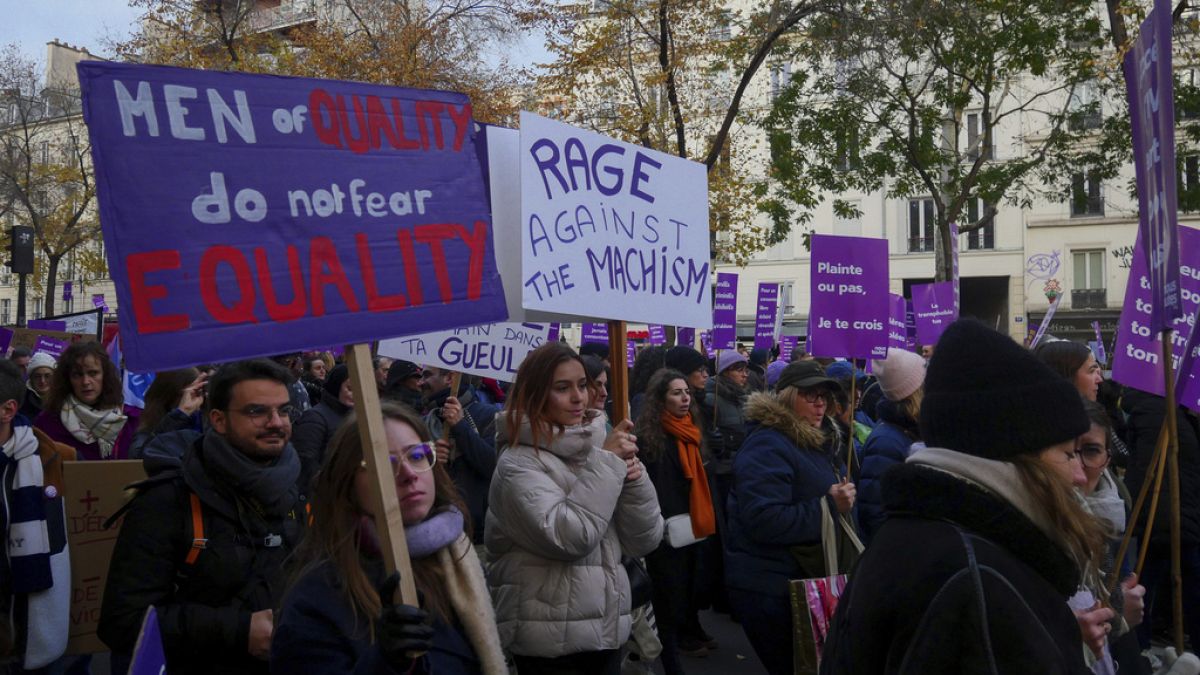World
‘Important step’: What we know about tentative US-Iran prisoner deal
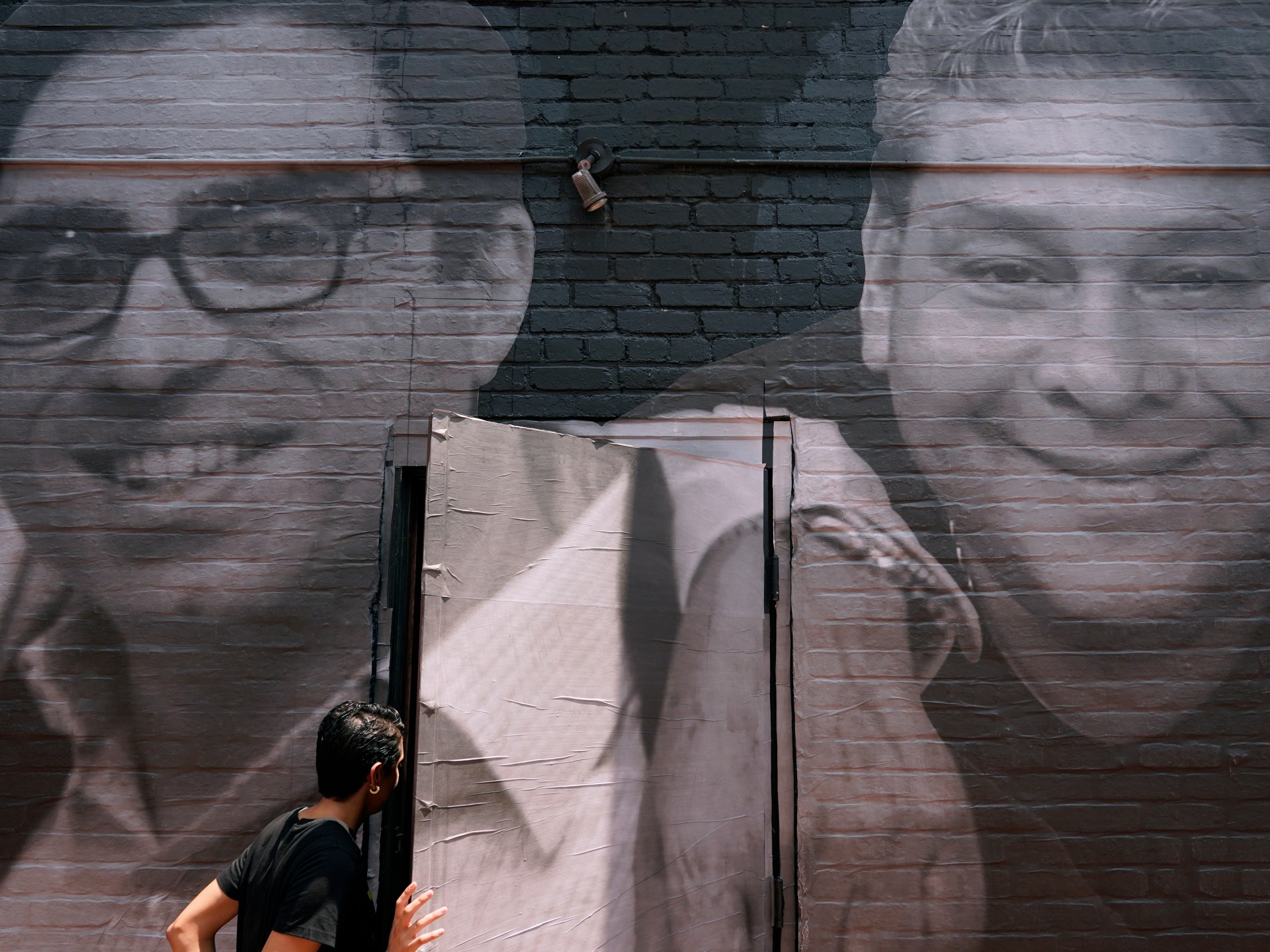
More details have slowly begun to emerge of a tentative deal that would see the United States and Iran engage in a prisoner swap in exchange for giving the Iranian government access to billions of dollars in frozen funds.
News of the agreement first broke on Thursday as US news outlets reported that four American detainees had been transferred from Tehran’s notorious Evin prison to house arrest in a hotel. A fifth prisoner had been released earlier.
Both US and Iranian officials later confirmed the first steps of the agreement but have given differing accounts of what it involves.
Barbara Slavin, a fellow at the US-based Stimson Center think tank, told Al Jazeera that the early details of the deal showed Tehran was at least partially willing to “de-escalate tensions” with Washington as it seeks a reprieve from crushing US sanctions.
She said that while the preliminary agreement “is an important step”, particularly for the families of the detainees, it is unlikely to represent a larger change in US-Iran relations.
“It doesn’t fundamentally change the nature of Iran’s relations with the United States or the international community,” Slavin said.
Here’s what we know so far about the deal:
What are the details?
Citing sources familiar with the agreement, The New York Times newspaper and several news agencies reported on Thursday that the deal, which has been months in the making, will see the eventual release of the five US prisoners.
Three of the prisoners were named as Siamak Namazi, Emad Sharghi and Morad Tahbaz. The families of the two others have withheld their identities, but they are said to be a scientist and a businessman.
Jared Genser, a lawyer for Namazi, welcomed the transfer to house arrest but said “there are simply no guarantees” about what happens next. “While I hope this will be the first step to their ultimate release, this is at best the beginning of the end and nothing more,” he said.
As part of the purported deal, the US will free five Iranian prisoners in return for the release of the detained Americans, the news outlets reported.
Iran also will be given access to about $6bn in oil revenue that was frozen in South Korea due to US sanctions. Under the scheme, the money would be transferred to Qatar to oversee.
Sources told several news agencies that Iran would be able to access the funds only for humanitarian purchases, such as food and medicine, and would not directly receive any money.
US Secretary of State Antony Blinken also said on Thursday that the funds would be in “restricted accounts” that can be accessed only for “humanitarian purposes”.
The restriction is an apparent attempt by the administration of US President Joe Biden to stem criticism that the released funds could be used to boost Iran’s government and weapons programme.
However, Iranian officials have offered a different characterisation, saying Tehran will decide how to use the funds.
The logistics of setting up a mechanism with Qatar also are expected to take weeks to sort out, given the complex nature of the scheme. Qatar worked with Oman and Switzerland in mediating the negotiations.
What has Iran said?
On Friday, Iran’s Ministry of Foreign Affairs said in a statement that the “process of releasing several billion dollars of Iranian assets which had been illegally frozen by the United States in South Korea has begun”, according to the state-run IRNA news agency.
It added: “Iran will determine how to use these assets, and they will be consumed to meet different needs of the country as determined by the related authorities.”
Iran’s semi-official Tasnim news agency said the funds were first to be converted from South Korean won into euros and then sent to an account in Qatar that Iran could access.
An earlier statement from Iran’s mission to the United Nations said Tehran and Washington “agreed to reciprocally release and pardon five prisoners”.
“The transfer of these prisoners … out of prison marks a significant initial step in the implementation of this agreement,” it said.
It remains unclear which Iranian prisoners are part of the tentative deal. The New York Times reported on Thursday that “a handful of Iranian nationals serving prison sentences for violating sanctions on Iran” would be released.
What has the US said?
Blinken has called the transfer of the prisoners “the beginning of the end of their nightmare and the nightmare that their families have experienced”.
Speaking on Thursday, the top US diplomat added, however, that “there’s more work to be done to actually bring them home”.
Blinken also denied that the deal amounted to “sanctions relief” for Iran.
“We will continue to enforce all of our sanctions. We will continue to push back resolutely against Iran’s destabilising activities in the region and beyond. … None of these efforts take away from that,” he said.
Still, Republicans quickly attacked the administration of Biden, a Democrat, as news of the potential deal emerged, saying it would ease economic pressure on Iran. Senator Tom Cotton accused Biden of a “craven act of appeasement” that would “embolden” Iranian leaders.
There has been no indication that the prisoner deal would spur movement on restoring the 2015 Iran nuclear accord, which saw Tehran scale back its nuclear programme in exchange for a lifting of international sanctions against its economy.
Former US President Donald Trump withdrew from the agreement unilaterally in 2018 and instead pursued a “maximum pressure” policy against Iran, heaping sanctions on the country.
While the Biden administration initially expressed optimism about restoring the pact, it has more recently dismissed prospects of a breakthrough after efforts to revive the deal collapsed. Biden also has continued to impose new sanctions on Tehran.
Who are the US prisoners?
Namazi, a businessman in his early 50s with dual US-Iranian citizenship, was detained in 2015 while visiting his family in Tehran.
Months later, his ailing father, Baquer, was detained after returning to Iran to visit his jailed son. They were both sentenced in 2016 to 10 years in prison for spying and cooperating with the US government, charges that Washington has rejected as false.
Baquer Namazi, a former Iranian provincial governor and former UNICEF official who also has dual citizenship, was put under house arrest in 2018 on medical grounds and left Iran last year for medical treatment.
Sharghi is also an Iranian-American businessman. He was first arrested in 2018 when working for the Saravan Holding tech investment company after moving with his wife from the US to Iran.
He was released on bail after eight months and cleared of spying and security-related charges but was banned from travelling. He was summoned by a separate court in 2020 and then sentenced to 10 years for espionage.
Tahbaz, an Iranian-American environmentalist who also holds British citizenship, was arrested in 2018. He was sentenced to 10 years in prison in 2019 for “assembly and collusion against Iran’s national security” and “contacts with the US enemy government … for the purpose of spying”.

World
Israel confirms death of missing Abu Dhabi rabbi: 'Abhorrent act of antisemitic terrorism’
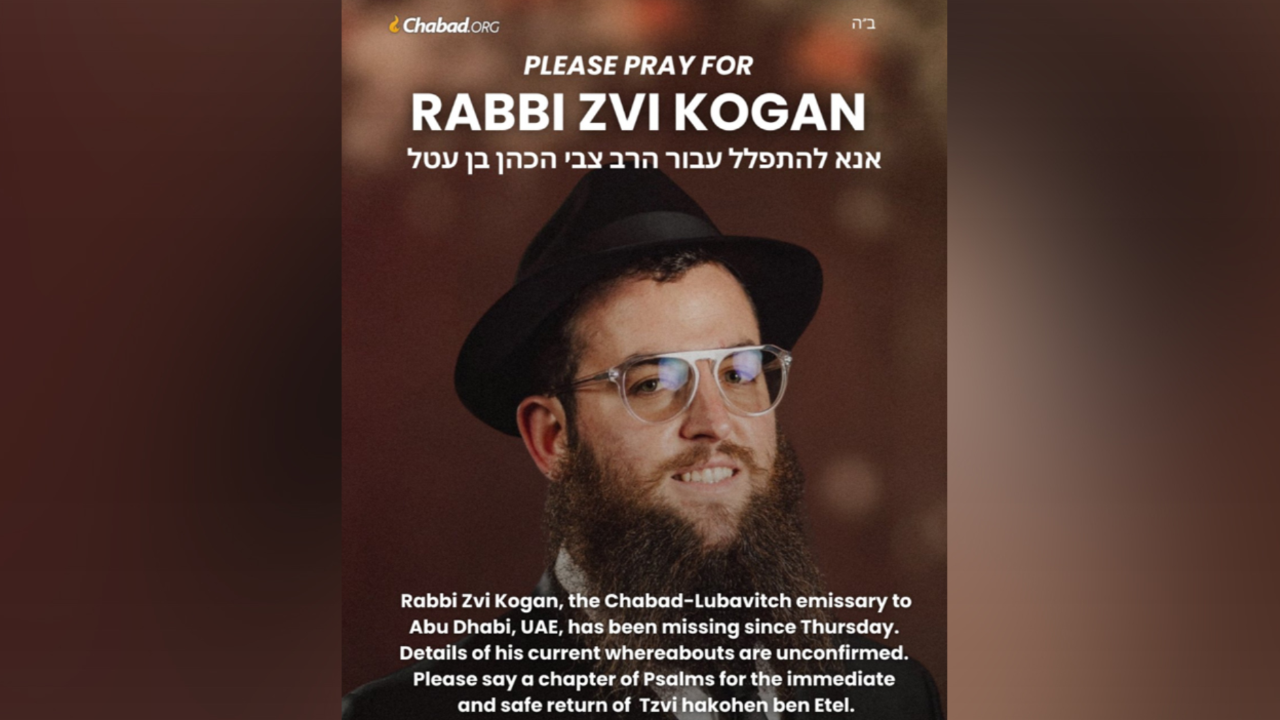
Israeli officials on Sunday confirmed the death of an Abu Dhabi rabbi who had been missing since Thursday.
“The UAE intelligence and security authorities have located the body of Zvi Kogan, who has been missing since Thursday, 21 November 2024,” the Israeli Prime Minister’s Office and the Ministry of Foreign Affairs said in a statement on X. “The Israeli mission in Abu Dhabi has been in contact with the family from the start of the event and is continuing to assist it at this difficult time; his family in Israel has also been updated.”
“The murder of Zvi Kogan, of blessed memory, is an abhorrent act of antisemitic terrorism. The State of Israel will use all means and will deal with the criminals responsible for his death to the fullest extent of the law,” the statement added.
RABBI FEARED KIDNAPPED, KILLED BY TERRORISTS AFTER GOING MISSING, PROMPTING INVESTIGATION
Rabbi Zvi Kogan, a Chabad emissary, had been missing since Thursday. (Chabad.org via X)
Rabbi Zvi Kogan was an emissary of the Chabad Lubavitch movement, a prominent and highly observant branch of Hasidic Judaism based in Brooklyn’s Crown Heights neighborhood in New York City.
The 28-year-old was a resident of Abu Dhabi in the United Arab Emirates when he went missing Thursday. He is a citizen of both Moldova and Israel.
According to his LinkedIn, Kogan worked as a recruiter and was “passionate about volunteering and serving [his] community.”
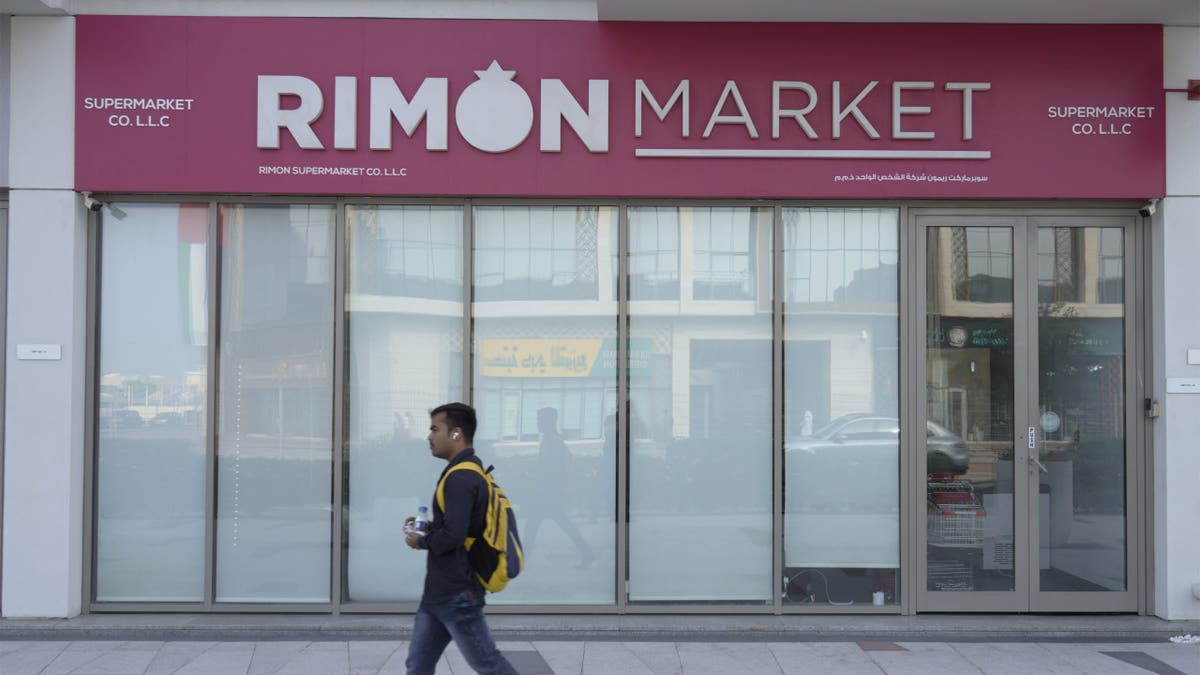
A man walks past Rimon Market, a Kosher grocery store managed by the late Rabbi Zvi Kogan, in Dubai, United Arab Emirates, Sunday, Nov. 24, 2024. (AP Photo/Jon Gambrell)
‘CHEERLEADING FOR TERRORISM’: TWITCH STAR CALLED FOR NEW 9/11, DISMISSED HORROR OF OCT 7
The Israeli Prime Minister’s Office announced its investigation into the unusual disappearance on Saturday. At the time, the statement said the disappearance appeared to be related to “a terrorist incident” but did not elaborate.
The United Arab Emirates’ Ministry of Interior had confirmed it was investigating Kogan’s disappearance, but described his citizenship solely as a “Moldovan national.”
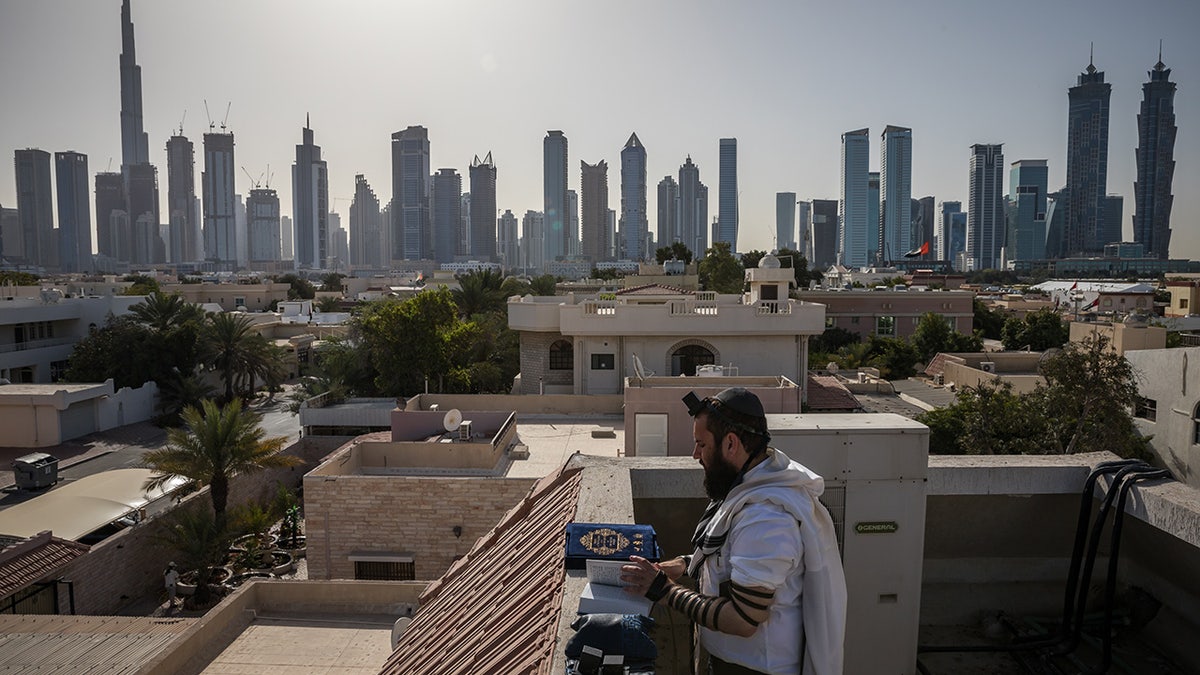
Rabbi Levi Duchman performs morning prayers on the roof of the Jewish Community Center of the UAE on March 22, 2021, in Dubai, United Arab Emirates. (Andrea DiCenzo/Getty Images)
CLICK TO GET THE FOX NEWS APP
The Rimon Market, a Kosher grocery store that Kogan managed on Dubai’s busy Al Wasl Road, was shut Sunday, according to the Associated Press. It had been a target of anti-Israel protests.
Kogan’s wife, Rivky, is a U.S. citizen who lived with him in the UAE. She is the niece of Rabbi Gavriel Holtzberg, who was killed in the 2008 Mumbai attacks.
The Associated Press contributed to this report.
World
‘Optical illusion’: Key takeaways from COP29

Rich countries have pledged to contribute $300bn a year by 2035 to help poorer nations combat the effects of climate change after two weeks of intense negotiations at the United Nations climate summit (COP29) in Azerbaijan’s capital, Baku.
While this marks a significant increase from the previous $100bn pledge, the deal has been sharply criticised by developing nations as woefully insufficient to address the scale of the climate crisis.
This year’s summit, hosted by the oil and gas-rich former Soviet republic, unfolded against the backdrop of a looming political shift in the United States as a climate-sceptic Donald Trump administration takes office in January. Faced with this uncertainty, many countries deemed the failure to secure a new financial agreement in Baku an unacceptable risk.
Here are the key takeaways from this year’s summit:
‘No real money on the table’: $300bn climate finance fund slammed
While a broader target of $1.3 trillion annually by 2035 was adopted, only $300bn annually was designated for grants and low-interest loans from developed nations to aid the developing world in transitioning to low-carbon economies and preparing for climate change effects.
Under the deal, the majority of the funding is expected to come from private investment and alternative sources, such as proposed levies on fossil fuels and frequent flyers – which remain under discussion.
“The rich world staged a great escape in Baku,” said Mohamed Adow, the Kenyan director of Power Shift Africa, a think tank.
“With no real money on the table, and vague and unaccountable promises of funds to be mobilised, they are trying to shirk their climate finance obligations,” he added, explaining that “poor countries needed to see clear, grant-based, climate finance” which “was sorely lacking”.
The deal states that developed nations would be “taking the lead” in providing the $300bn – implying that others could join.
The US and the European Union want newly wealthy emerging economies like China – currently the world’s largest emitter – to chip in. But the deal only “encourages” emerging economies to make voluntary contributions.
Failure to explicitly repeat the call for a transition away from fossil fuels
A call to “transition away” from coal, oil, and gas made during last year’s COP28 summit in Dubai, the United Arab Emirates, was touted as groundbreaking – the first time that 200 countries, including top oil and gas producers like Saudi Arabia and the US, acknowledged the need to phase down fossil fuels. But the latest talks only referred to the Dubai deal, without explicitly repeating the call for a transition away from fossil fuels.
Azerbaijan’s President Ilham Aliyev referred to fossil fuel resources as a “gift from God” during his keynote opening speech.
New carbon credit trading rules approved
New rules allowing wealthy, high-emission countries to buy carbon-cutting “offsets” from developing nations were approved this week.
The initiative, known as Article 6 of the Paris Agreement, establishes frameworks for both direct country-to-country carbon trading and a UN-regulated marketplace.
Proponents believe this could channel vital investment into developing nations, where many carbon credits are generated through activities like reforestation, protecting carbon sinks, and transitioning to clean energy.
However, critics warn that without strict safeguards, these systems could be exploited to greenwash climate targets, allowing leading polluters to delay meaningful emissions reductions. The unregulated carbon market has previously faced scandals, raising concerns about the effectiveness and integrity of these credits.
Disagreements within the developing world
The negotiations were also the scene of disagreements within the developing world.
The Least Developed Countries (LDCs) bloc had asked that it receive $220bn per year, while the Alliance of Small Island States (AOSIS) wanted $39bn – demands that were opposed by other developing nations.
The figures did not appear in the final deal. Instead, it calls for tripling other public funds they receive by 2030.
The next COP, in Brazil in 2025, is expected to issue a report on how to boost climate finance for these countries.
Who said what?
EU Commission President Ursula von der Leyen hailed the deal in Baku as marking “a new era for climate cooperation and finance”.
She said the $300bn agreement after marathon talks “will drive investments in the clean transition, bringing down emissions and building resilience to climate change”.
US President Joe Biden cast the agreement reached in Baku as a “historic outcome”, while EU climate envoy Wopke Hoekstra said it would be remembered as “the start of a new era for climate finance”.
But others fully disagreed. India, a vociferous critic of rich countries’ stance in climate negotiations, called it “a paltry sum”.
“This document is little more than an optical illusion,” India’s delegate Chandni Raina said.
Sierra Leone’s Environment Minister Jiwoh Abdulai said the deal showed a “lack of goodwill” from rich countries to stand by the world’s poorest as they confront rising seas and harsher droughts. Nigeria’s envoy Nkiruka Maduekwe called it “an insult”.
Is the COP process in doubt?
Despite years of celebrated climate agreements, greenhouse gas emissions and global temperatures continue to rise, with 2024 on track to be the hottest year recorded. The intensifying effects of extreme weather highlight the insufficient pace of action to avert a full-blown climate crisis.
The COP29 finance deal has drawn criticism as inadequate.
Adding to the unease, Trump’s presidential election victory loomed over the talks, with his pledges to withdraw the US from global climate efforts and appoint a climate sceptic as energy secretary further dampening optimism.
‘No longer fit for purpose’
The Kick the Big Polluters Out (KBPO) coalition of NGOs analysed accreditations at the summit, calculating that more than 1,700 people linked to fossil fuel interests attended.
A group of leading climate activists and scientists, including former UN Secretary-General Ban Ki-moon, warned earlier this month that the COP process was “no longer fit for purpose”.
They urged smaller, more frequent meetings, strict criteria for host countries and rules to ensure companies showed clear climate commitments before being allowed to send lobbyists to the talks.
World
COP29 Host Urges Collaboration as Deal Negotiations Enter Final Stage
-

 Business1 week ago
Business1 week agoColumn: Molly White's message for journalists going freelance — be ready for the pitfalls
-

 Science4 days ago
Science4 days agoTrump nominates Dr. Oz to head Medicare and Medicaid and help take on 'illness industrial complex'
-

 Politics6 days ago
Politics6 days agoTrump taps FCC member Brendan Carr to lead agency: 'Warrior for Free Speech'
-
/cdn.vox-cdn.com/uploads/chorus_asset/file/25739950/247386_Elon_Musk_Open_AI_CVirginia.jpg)
/cdn.vox-cdn.com/uploads/chorus_asset/file/25739950/247386_Elon_Musk_Open_AI_CVirginia.jpg) Technology6 days ago
Technology6 days agoInside Elon Musk’s messy breakup with OpenAI
-

 Lifestyle7 days ago
Lifestyle7 days agoSome in the U.S. farm industry are alarmed by Trump's embrace of RFK Jr. and tariffs
-

 World6 days ago
World6 days agoProtesters in Slovakia rally against Robert Fico’s populist government
-

 News6 days ago
News6 days agoThey disagree about a lot, but these singers figure out how to stay in harmony
-

 News6 days ago
News6 days agoGaetz-gate: Navigating the President-elect's most baffling Cabinet pick






/cdn.vox-cdn.com/uploads/chorus_asset/file/25749796/installer_61.png)








